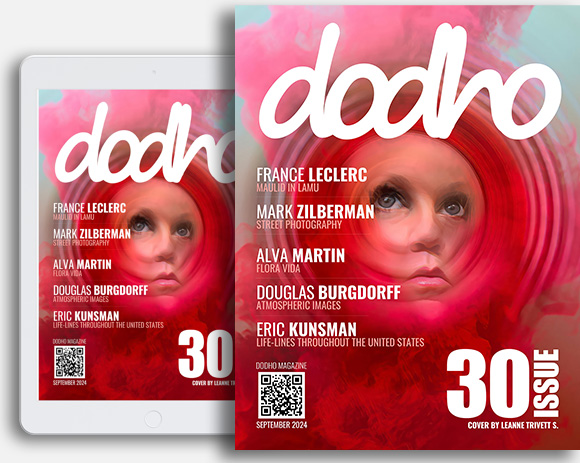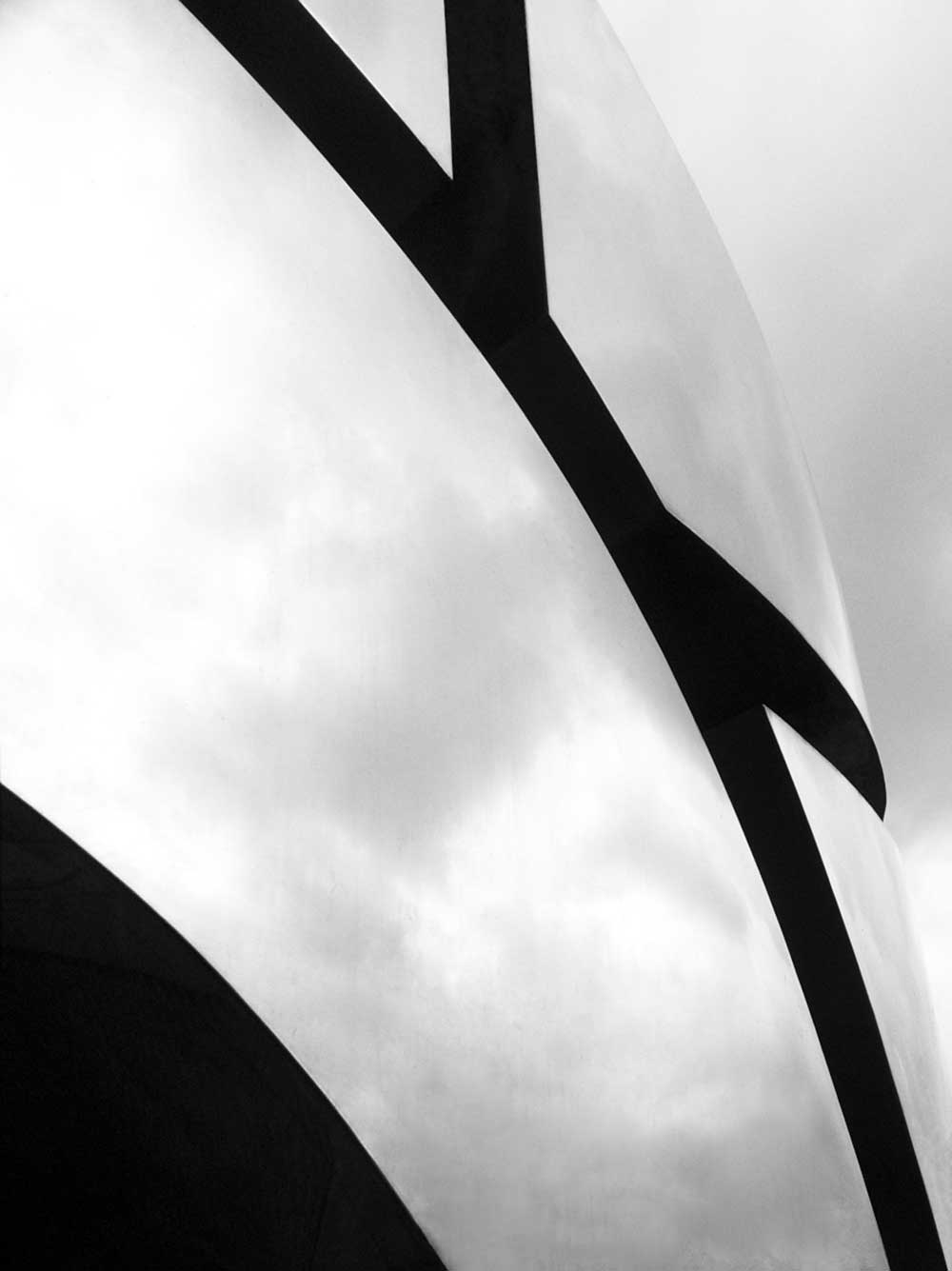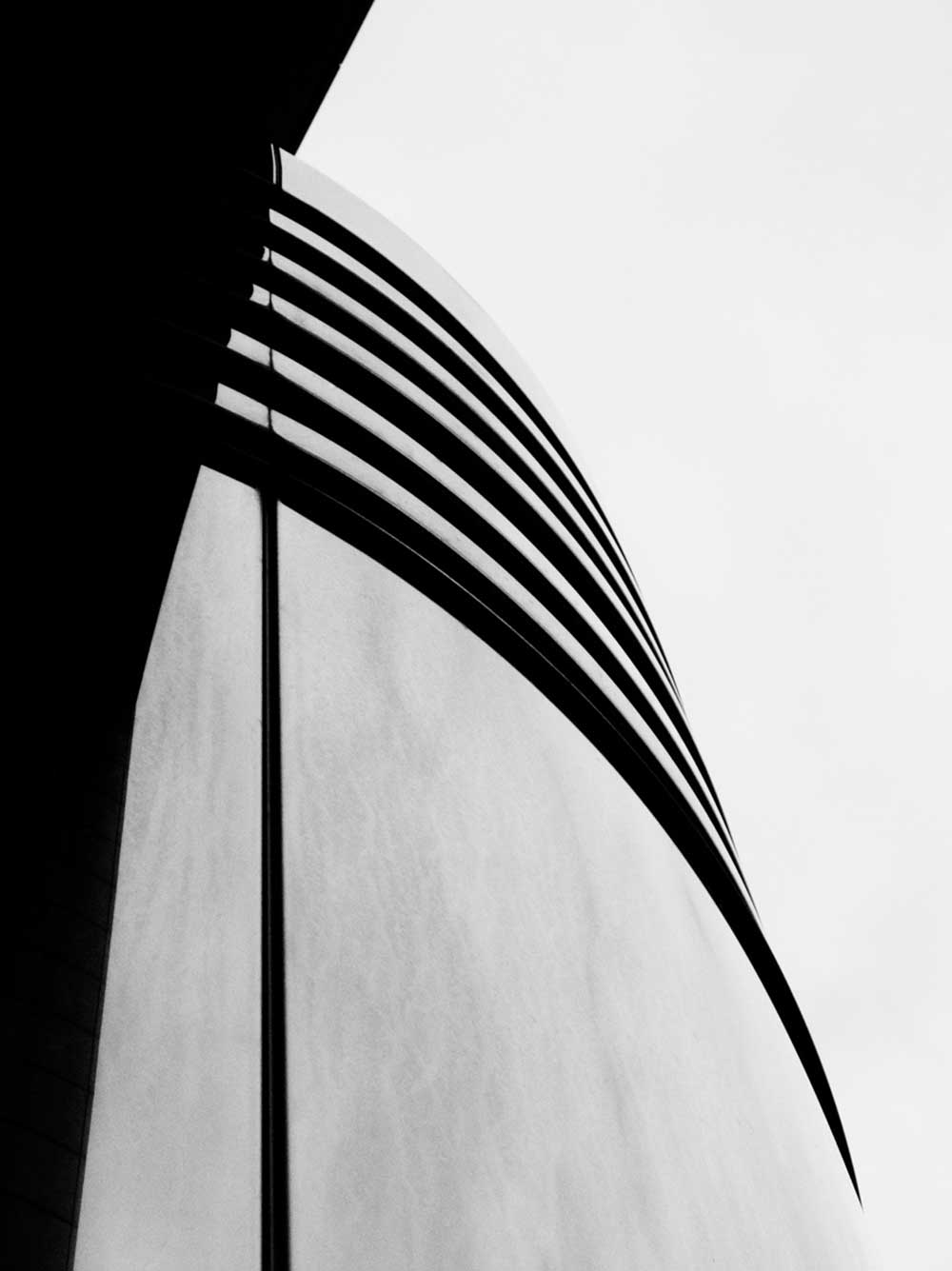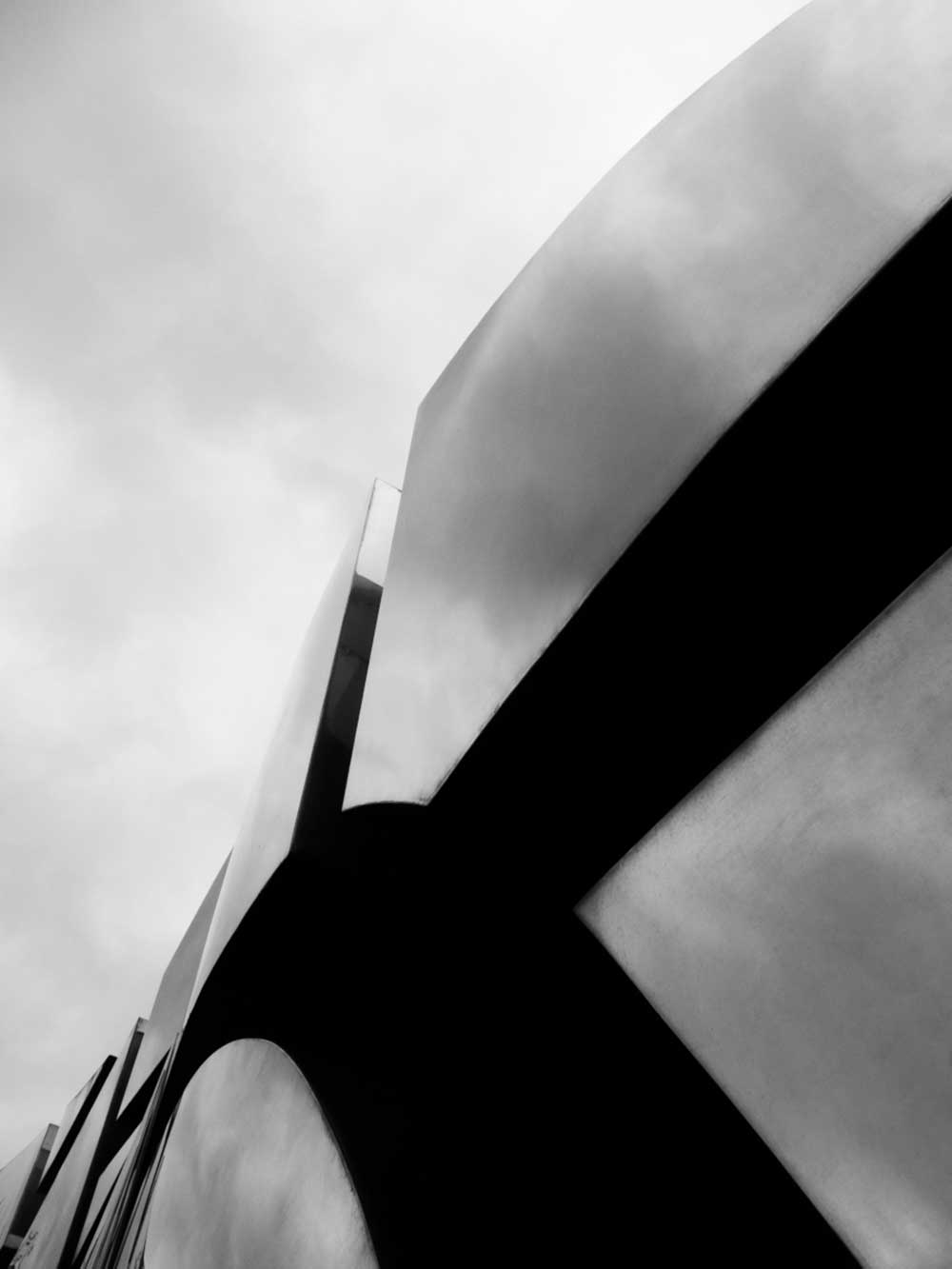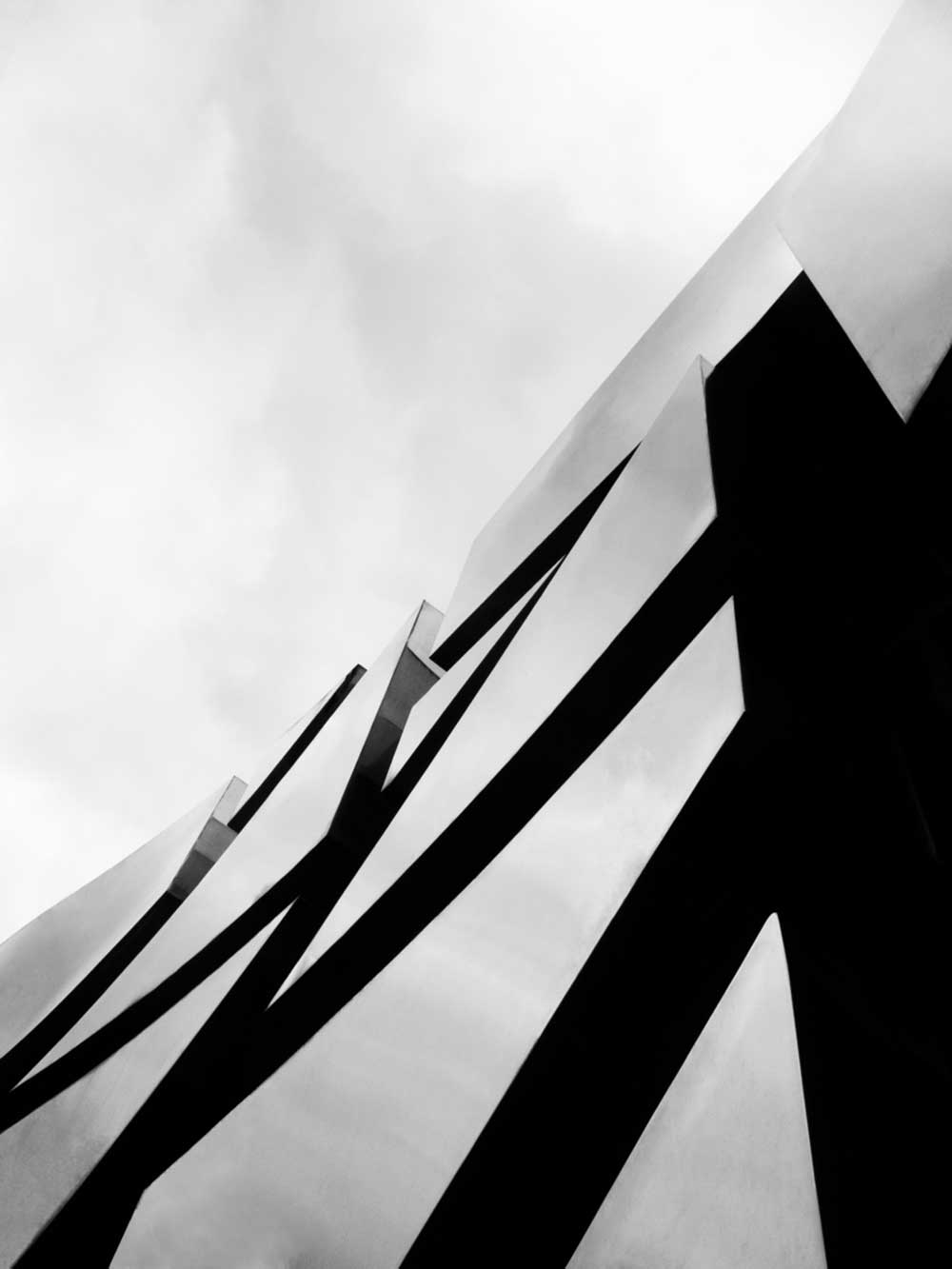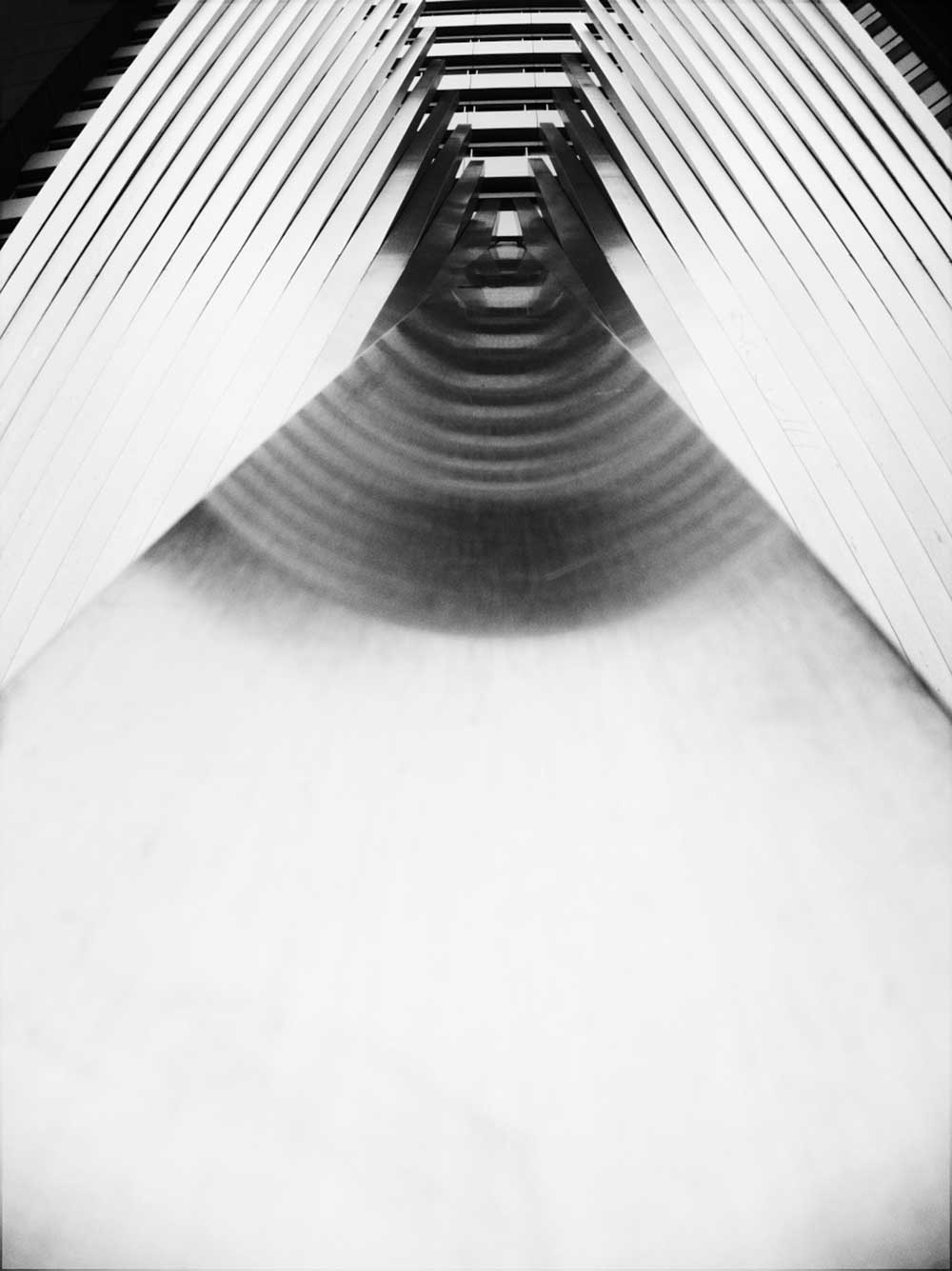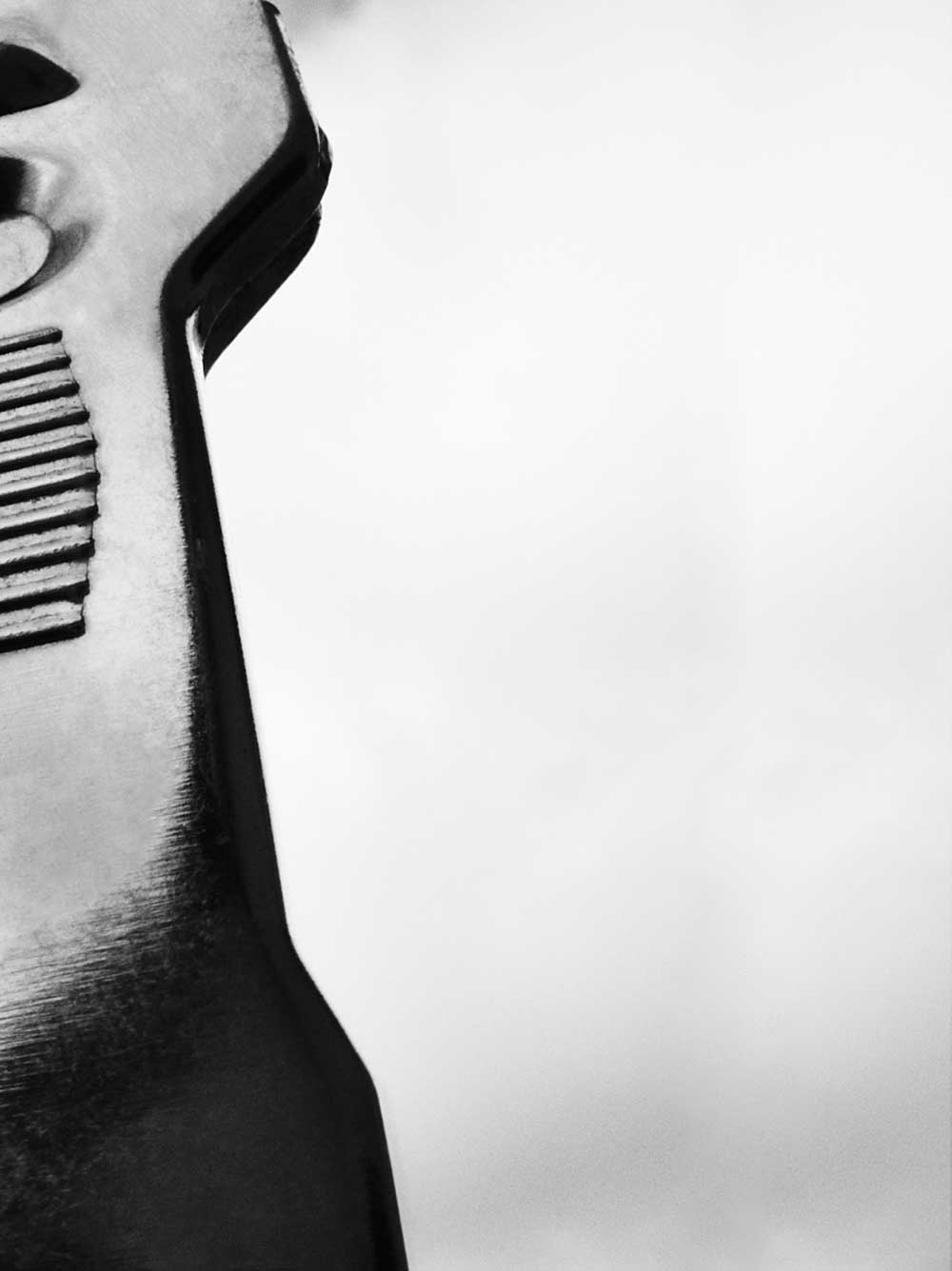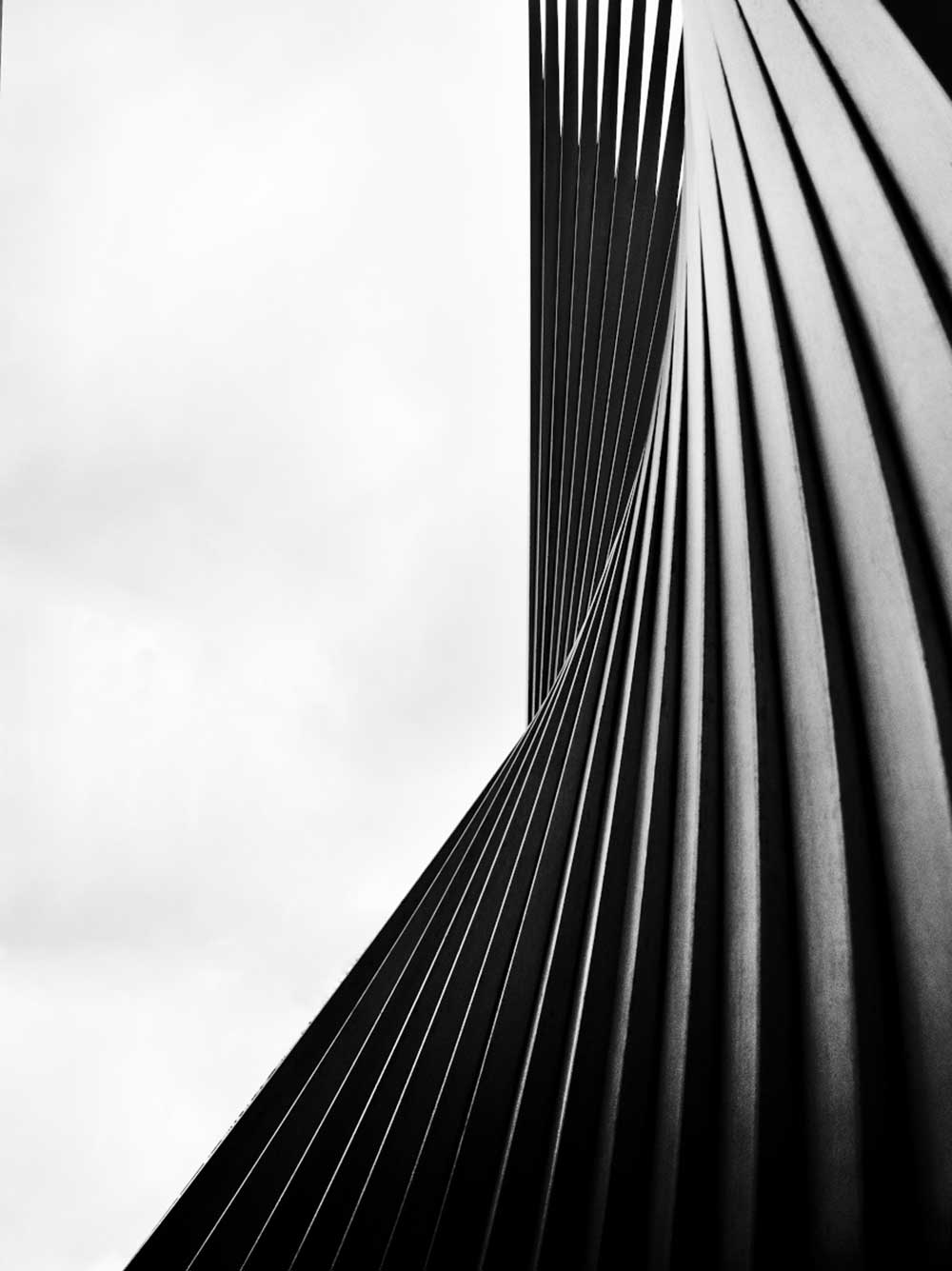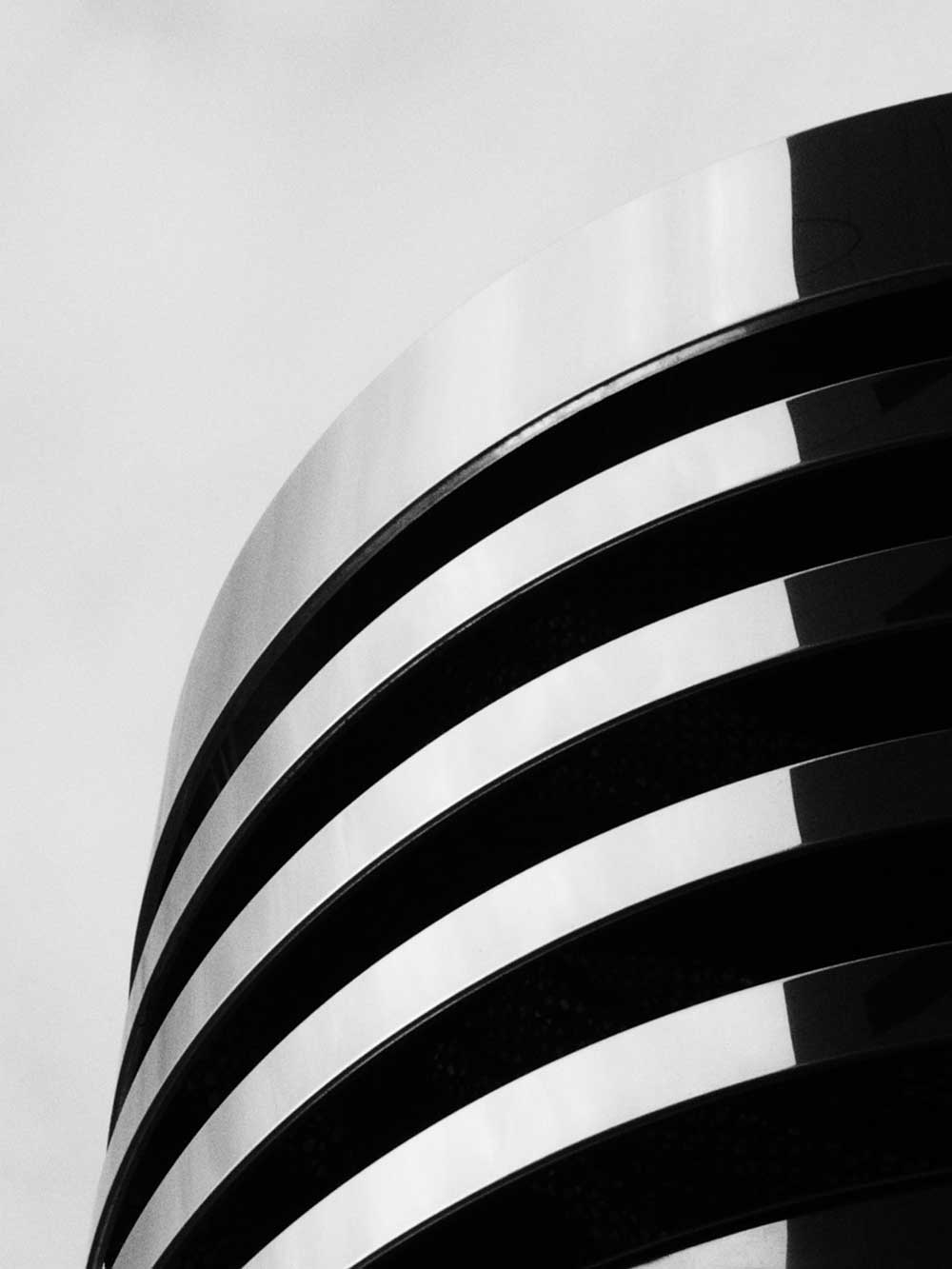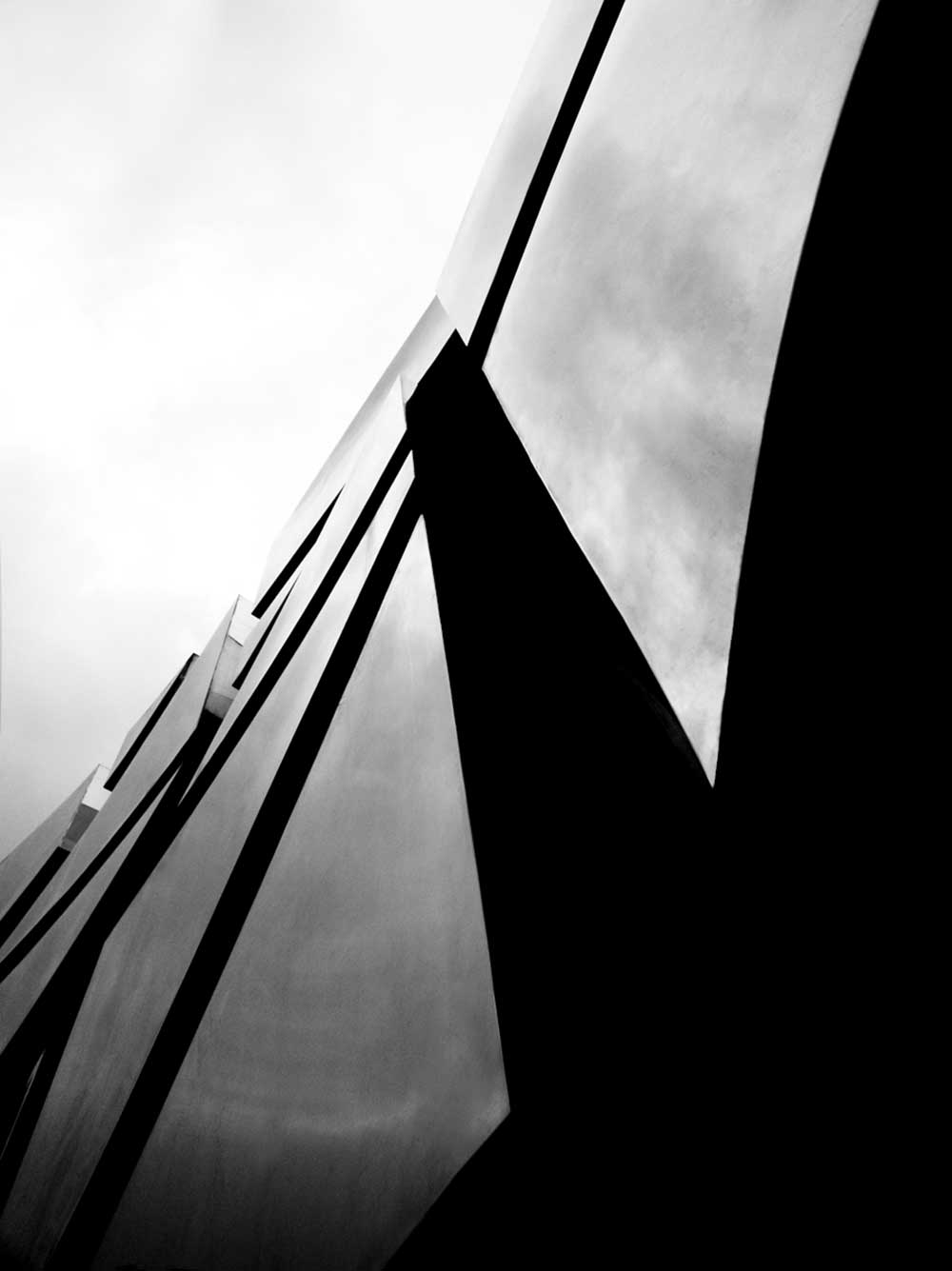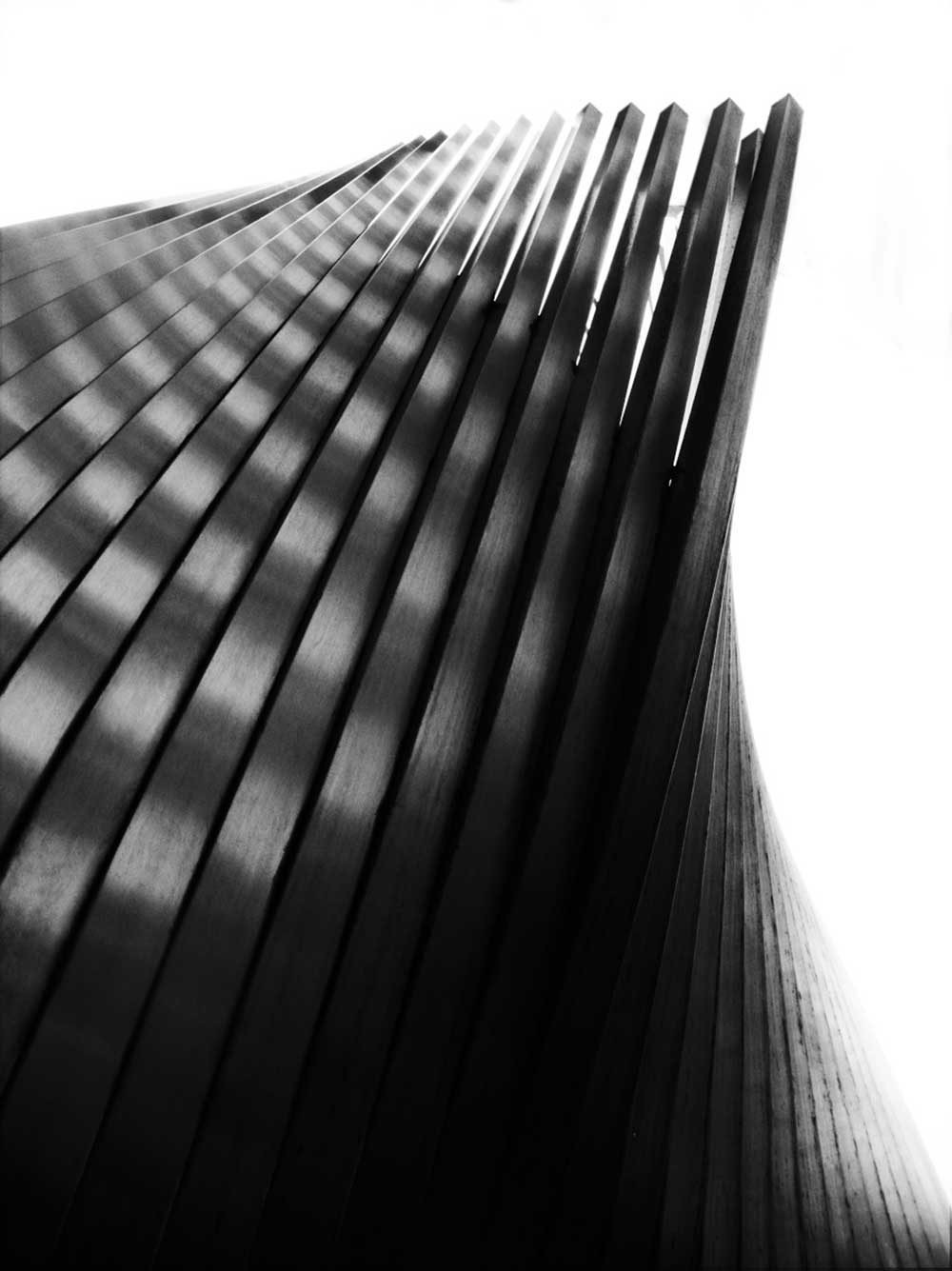Perspectives: Cologne is an ongoing series based on a change of perspective. The objects depicted are close-ups of utilitarian objects and art in public spaces. By changing the direction of view, the objects are no longer recognizable in their actual form and an alienation effect sets in, which is used to model the image.
The resulting photographs depict a form of fictional architecture that has a dystopian character due to the large surfaces and harsh contrasts, creating a coldness reminiscent of the glass palaces of today.
It is no coincidence that the angle of view from diagonally below, a well-established perspective from the aesthetics of fascism, is such a regular occurrence. Ideas from fascism have been gaining popularity again for some time now and are on the rise, especially in the democracies of the so-called “Western world”.
These ideas degrade people and negate any form of empathy. They demand unconditional subordination to a system and use bureaucratic coldness to exclude any individual who avoids the conformity this creates.
The pictures are abstract, so it is basically up to the viewer to decide what they mean to them. For me personally, however, the following thoughts play an important role:
We are facing a number of profound social problems that are intensifying instead of diminishing. A very decisive one of these chasms is the ever-widening gap between rich and poor. On the one hand, the middle class in many democratic societies is increasingly disappearing, while the poorer side is growing. At the same time, a small number of people are accumulating more and more wealth, and are using all the money and influence at their disposal to keep this mechanism going.
A society is always a social construct – but for some reason we have increasingly developed our societies into a pyramid scheme. The series of images is intended to give an impression of what we could be heading towards as a human society if we continue to accept these developments.
The angle of view from below makes the objects appear larger and somewhat otherworldly, as if they were standing over the people. They are facades of power, behind which a meticulous bureaucracy records humanity in lists and tables in order to administer them with deadly efficiency. In that way, they also degrade the viewer and condemn them to the role of observer, while the structures shown all serve to seal the powerful and their entities off in order to be safe from this very observer, should they ever awaken from their rigidity.
The project can therefore also be seen as an allusion to the emerging prepper culture among billionaires. But first and foremost, it is intended to show the coldness that arises when people are reduced to their ability to function. It shows the fascist potential of neoliberal societies.
Another aspect that is important to me in this project is much more mundane: a camera is simply a tool. The photographer’s task is to be able to operate this tool and use it in a targeted manner. I’m easily bored by specifications and all the tech stuff, and there’s no way for me to afford it anyway. All the pictures in the series were taken with a compact camera that I purchased for 30 euros on eBay. Only two aspects were important to me when I bought it: that it can be set manually and that it shoots in RAW format. With my regular camera, some of the pictures could not have been captured at all: too big, too bulky, too high focal length of the lenses.
I also always have the compact camera in my bag because it’s so small. Otherwise this photo series would probably never have started, as I did get an idea for a picture – but would I really have driven halfway across the city and returned to the location to check whether this very vague idea could be turned into an interesting photo? Instead, I was able to lie down in the dirt and take the picture right away.
Photography is not about having the latest and most powerful camera available. A camera is a tool, and it just has to be a suitable one for the job. After all, a field is not cultivated with a sports car either.
So far, I’ve primarily photographed for myself and only recently started submitting pictures. I don’t even have Instagram, let alone a website. But I actually find that quite pleasant as I’m a bit more isolated from trends. It gives me a slightly wider scope to discover photography for myself and I’m a bit more protected from picking up on an aesthetical echo. I might change that, but so far it has definitely helped me to develop some kind of personal photographic language.
About Jochen Forst
Jochen Forst, born on May 25th 1980 in Engelskirchen, Germany, only took up photography relatively late in life at the age of 37. He is originally a musician and graduated from the University of Cologne with a degree in musicology, German studies and ethnology.
He came to photography when he was working for an instrument maker in 2017 and was asked to take product photos of the instruments. He then bought an old, second-hand DSLR and completed an online course on photography basics. From then on, photography became a constant companion. He lives in Cologne and works as composer and freelance ghostwriter for texts.


